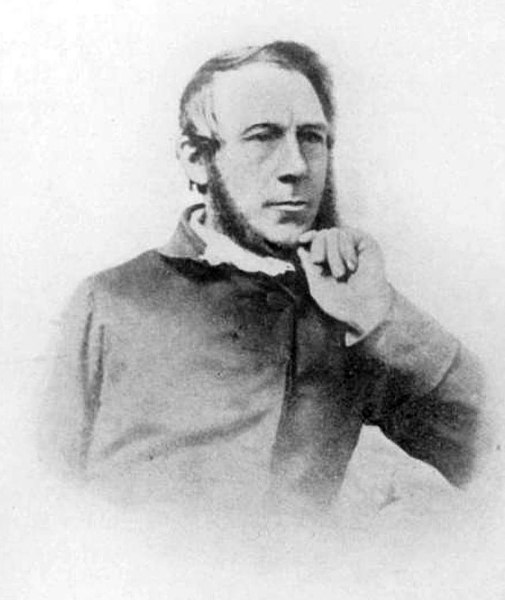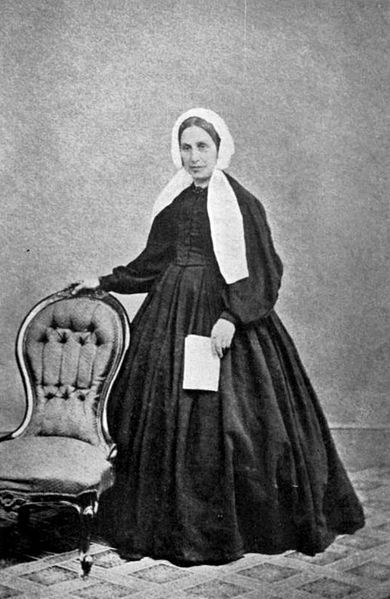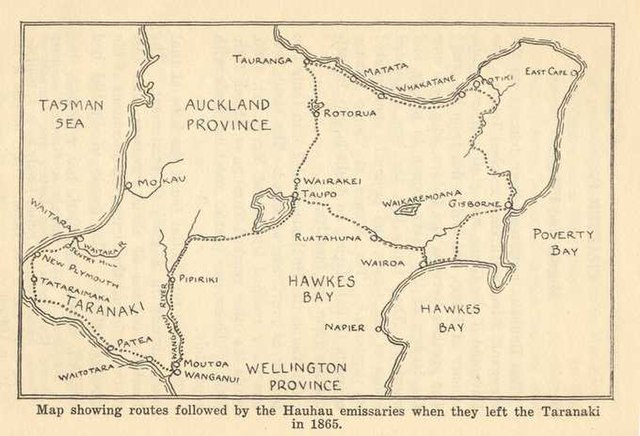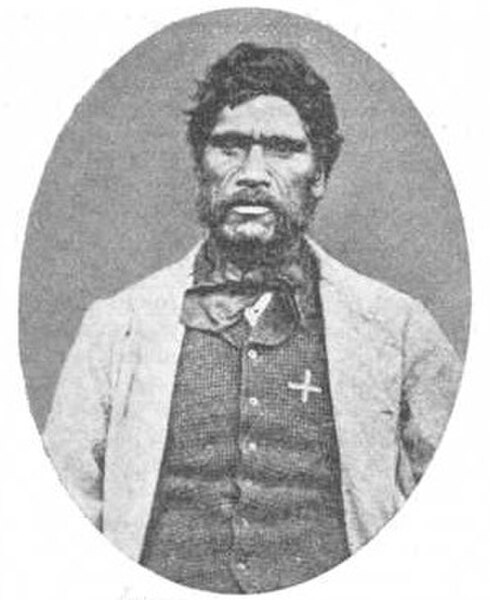Carl Sylvius Völkner was a German-born Protestant missionary active in the North Island of New Zealand during the mid-nineteenth century. He is famous for being tried and executed for espionage by members of the Pai Mārire faith at his church in Ōpōtiki, in the Bay of Plenty. This later became known as the Völkner incident, an important event in the New Zealand Wars.
Carl Sylvius Völkner
Emma Völkner, his wife
Völkner's gravestone now stands embedded in the Ōpōtiki church wall
The Pai Mārire movement was a syncretic Māori religion founded in Taranaki by the prophet Te Ua Haumēne. It flourished in the North Island from about 1863 to 1874. Pai Mārire incorporated biblical and Māori spiritual elements and promised its followers deliverance from 'pākehā' (British) domination. Although founded with peaceful motives—its name means "Good and Peaceful"—Pai Mārire became known for an extremist form of the religion known to the Europeans as "Hauhau". The rise and spread of the violent expression of Pai Mārire was largely a response to the New Zealand Government's military operations against North Island Māori, which were aimed at exerting European sovereignty and gaining more land for white settlement; historian B.J. Dalton claims that after 1865 Māori in arms were almost invariably termed Hauhau.
Sentry Hill redoubt, Taranaki, 1863.
Routes of the Pai Mārire emissaries on the North Island, 1865
The prophet Patara Raukatauri.






